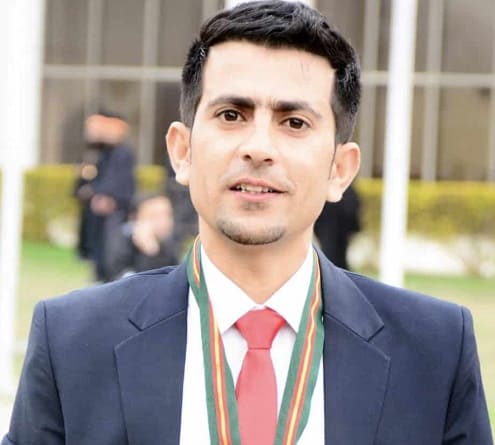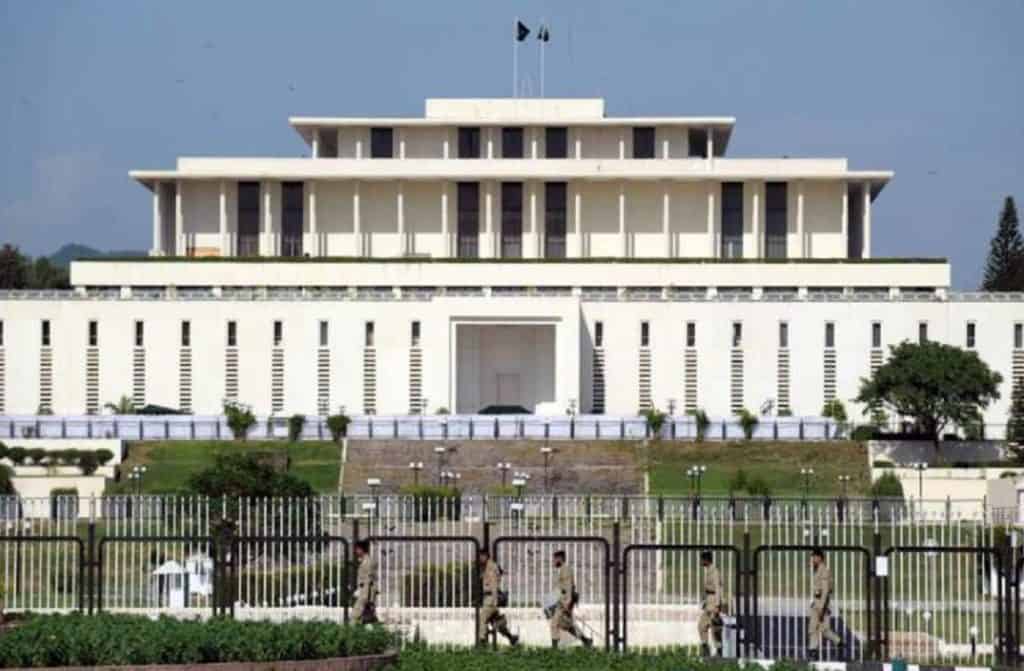By Muneeb – Ur- Rahman
In general, an oligarchy is a system of government in which a particular group of individuals or families hold all the political power and dominate the country. This tiny group exercises and controls all the affairs for their self-serving objectives. This is known as the “political class” or “ruling elite”. Present-day Pakistan is an example of such elite capture.

Although it is the 21st century and we are living in a democratic society, still, in practice there are just a few who are ruling us. Most of the political parties in the country which promote democracy, do not practice it internally. Over the years, the tools of exploitation might have changed but the practice remains constant. Many of the terms coined in the mid-nineteenth century including “iron law of oligarchy” and “ruling class” are quite relevant in today’s politics.
The iron law of oligarchy asserts that all institutions, even those that uphold democratic principles, will eventually fall under the control of an elite minority. The elite minority will inevitably develop a class of leaders who are more or less independent from those to whom they must answer. Present-day Pakistan is an example of such elite capture.
Although other variables such as institutional and party structure can lessen that independence. But mostly, the leaders’ actions in an institution or party are practically free from control. In other words, people with high positions within an institution are free from verification by those who hold lower spots within the institution. Though, this freedom does not mean that the top ranks can fully ignore the needs and desires of the lower orders in the party or institution. This seems to accurately express Robert Michels’ sentiment, in Sociology of the Party he states: ” The thesis of the unlimited power of the leaders in democratic parties requires a certain limitation”.
The Iron Law of Oligarchy operates in a way that even when official authority is granted to the members as a whole, only a relatively small number of people within the party or institution make decisions. Whether this is an elected post or any other leadership role, those with delegated powers often take more power than those who chose them. The top leaders or ranks typically form a cohesive, behind-the-scenes, informal group, since it is far easier for them to make plans, and carry out programs in private personal conversations than under formal procedures. When the top leaders or ranks work closely together from behind the doors, they frequently form their own perspectives on issues. They tend to stay in power for a long period and become relatively impermeable to those rising from lower strata.
The majority of the men who sit at the top of a party or institution, their positions are rarely endangered by a substantial organized internal opposition. So, the men holding the top positions typically hold the real power. When power is intense, the leadership always acts to maintain that control, even when doing so goes against the interests of the state. They will even employ undemocratic measures to suppress any internal resistance that they perceive as a danger to their dominance.
The present power structure of Pakistan where a tiny group of people holds all the sway provides a strong case to consider it as a state under the oligarchs. Even though the Pakistanis can benefit from many aspects of democracy enshrined in the constitution, such as elections and freedom of speech but in reality, the ruling oligarchs have complete influence over all the aspects of these rights, including how and when the elections should be held, and sometimes may even deny holding elections. They may even control the media, including reporting in the media and the political advertisements in the run-up to the vote. This total control by the few, produces puppet leaders—weak politicians who might pose as powerful leaders but in reality, are under the control of the oligarchs and forces who wage their election campaigns.
Oligarchic regimes often become more powerful and adopt dominating, even oppressive or exploitative practices and become more self-serving. Inequality tends to get worse in such societies and Pakistan is unfortunately a living example of that. The rich get richer and the poor get poorer, and the middle class shrinks to a great extent. In addition, a small number of people hold more power than a wider group in the country, and these few decide to enact laws and policies that favor them mostly at the expense of the majority group. The rule of law is disregarded and undermined. Personal interests of the ruling elite are placed ahead of those of the nation and country’s interests. The socio-political developments from the last year depict Pakistan as a democracy in theory only, while in reality, it operates as an oligarchy, or at least is moving in that direction.
This elite power may encounter resistance at some point, but here a question arises, do those who oppose elite power have to genuinely believe in democracy? Not necessarily. Michels’ in his second metaphor for democracy, believes that a new elite will inevitably emerge to fight the old elite’s ascent to aristocracy, and that challenge will never cease.
Historically, In Pakistan, some movements that had stood against the oligarchic elite and status quo have reduced oligarchic dominance in some of the cases, while others have been violently suppressed. Although the idea of true democracy, in which majority rules over minority, looks difficult to accomplish, we have seen that there are at least some forces arising for defeating an oligarchy. Though this may not exactly fit the dictionary definition of many, however, there has been a sporadic change, this time a mobilized mass movement has emerged again, which is again challenging the established order, upending the status quo by using the power of social media. This new generation is ready for direct confrontation, they are demanding democratic principles including elections, rule of law, accountability, and transparency to be held in the country and their rights to be respected. The most crucial lesson to be learned from our past is to not repeat the follies of the past and let the country evolve from this elite capture which has added nothing but misery to the masses in this country.
Muneeb-Ur-Rahman – Research Officer, Balochistan Think Tank Network (BTTN), Quetta –Pakistan.
(The views expressed in this article belong only to the authors and do not necessarily reflect the views of World Geostrategic Insights).







